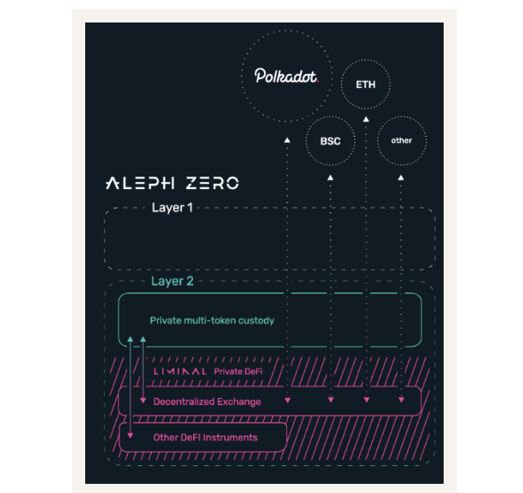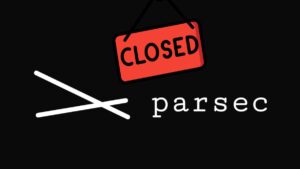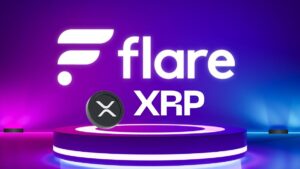Aleph Zero, a Proof-of-Stake (PoS) layer 1 public blockchain is revolutionizing the way transactions are recorded on the blockchain and building a network that is easily accessible, scalable, decentralized, and provides privacy. Let us delve deeper to understand how Aleph Zero plans to implement a stronger and secure network.
The Emerging Decentralized Economy
The advent of cryptocurrencies and the blockchain technology has created a new digital economy that could operate in a decentralized environment. In order to function, these digital assets and smart contracts make use of blockchain technology that allow transparent information sharing within a business network.
It is essentially a digital ledger of transactions that is duplicated and distributed across the entire network of computer systems on the blockchain. Therefore, all transactions, balances, and interactions of the users are public and can be tracked down.
However, several entities such as government organizations do not want their transactions, interactions, or private documentation recorded on the blockchain due to security issues. To combat such issues, developers have created smart contracts to hide the code of the smart contract and conceal the interactions of its users.
What does Aleph Zero bring?
Aleph Zero was created in 2018 as a PoS blockchain that aims to improve anonymity and is powered by a Directed Acyclic Graph algorithm (DAG) based consensus protocol (AlephBFT). It is one of the most scalable networks in the crypto space due to the new DLT which is implemented in the protocol.
Furthermore, Aleph Zero addresses the deficiencies of current DLT platforms in various areas including speed, validation time, scalability, and security. This allows organizations to construct decentralized initiatives that benefit from the speed and security of a public distributed ledger technology (DLT) platform while maintaining transaction privacy.
Since, the Aleph blockchain uses DAG, it allows multiple users to produce blocks together, and then those blocks are subsequently ordered and validated by the consensus. This mechanism helps in enhancing the speed and throughput of the entire platform. The Aleph Zero platform runs on its native cryptocurrency called “AZERO”.
Ensuring Privacy
Aleph Zero is gearing up to be one of the most competitive players in the digital assets sector and future decentralized apps. The platform uses a privacy layer called “Liminal” that helps to create a more confidential environment for its users. This is achieved through the latest privacy-enhancing techniques called ZK-SNARKS and secure Multi-Party Computation (sMPC). ZK-SNARKs and sMPC guarantee that the information of each participant is kept confidential.
These two technologies form the basis of the privacy layer Liminal, ZK-SNARKS verify if the integrity of the transaction is correct, without revealing any data and sMPC finalizes the transactions. The combination of these techniques provides a revolutionary privacy layer.
Aleph Zero’s Achievements
The Aleph Zero mainnet has now been upgraded and $AZERO staking is live. 🚀
You can start nominating the Aleph Zero Foundation validators with 0% commission until the community validators program is live.
Learn more about what to do next with the thread below👇 pic.twitter.com/orb8VRmXhY
— Aleph Zero (@Aleph__Zero) April 27, 2022
In April, Aleph Zero announced that staking has become available for AZERO token holders. The move has created a positive sentiment among investors and the community. Through staking, the network will become increasingly more secure, and the rewards for the services are estimated to be between 10-20% yearly.
Earlier this year, Aleph Zero partnered with Fractal Ensure that Aleph Zero’s compliance requirements are met. In addition, it will also facilitate the contributors’ onboarding process by providing real-time 24/7 support to contributors via email and Telegram channels to ensure all their questions are answered.
Aleph Zero has secured $15M in VC and community funding and debuted on the broader markets in 2022 after ensuring regulatory compliance in Switzerland and having the core technology peer-reviewed. The Aleph team is also developing a global wallet, “Common”, which will be a privacy-enhancing, multichain, and low-cost decentralized exchange for digital assets.
Last week, the platform opened its Mainnet to community validators, for anyone who fulfills the hardware requirements and possesses the appropriate number of AZERO coins to begin validating and securing the network. Previously, Adam Gagol, co-founder and CTO at Aleph Zero had stated,
“Perhaps the right way to look at web privacy today is that we are finally at the end of a huge log jam. The destination which is a better form of privacy where the user is in control was never in doubt, but there were other fish to fry. The jam was caused by an understandable focus on solving scalability, speed and cost, leaving too little energy and investment to address privacy. But that’s the past.”











